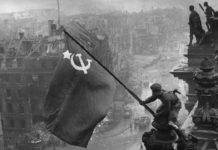Far from being a politician with no vision or plan, Benjamin Netanyahu is in dialogue with history. His ideology was inherited from his father, but it harkens back to 15th-century messianic writings.
By Avner Ben-Zaken
May 24, 2015
Benjamin Netanyahu is a highly intelligent individual. This fact is widely acknowledged, even among his political rivals. In his political activities — notwithstanding assertions to the contrary — there is no evidence of any logical inconsistency, charlatanism, zigzagging, predilection for personal interests over the national interest, survivalist reaction, or over-abiding cynicism. Nor is he merely a brilliant campaigner: Netanyahu has a firm and coherent philosophical framework, and is guided by a profound conviction in the justice of his ways.
Whereas the majority of Israel’s political leaders in recent years have dealt with solving specific problems, Netanyahu has set his sights on the long-term depths of history. He is the sole political leader who is at present conversing with history, corresponding with it and drawing from it practical political conclusions. Essentially, Israel has never had such an ideological prime minister.
As opposed to what many observers would have us believe, Netanyahu’s ideology is not rooted mainly in his American life experience, Friedmanist capitalism, or Straussian neoconservatism — all of which are modern political traditions and trends to which he was exposed indirectly and relatively late in life. Rather, Netanyahu was nurtured at an early age on a political philosophy dating to the late Middle Ages, which he received directly from his father, the late historian Benzion Netanyahu.
Read more at https://www.haaretz.com/.premium-the-father-the-son-and-the-spirit-of-catastrophe-1.5364937











